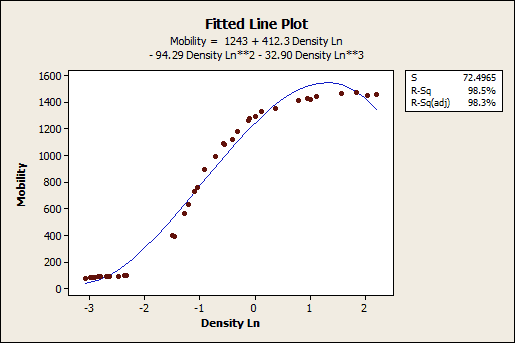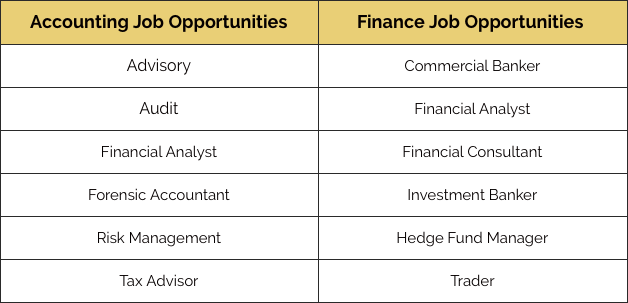What Is Bond Rating Finance Things To Know Before You Get This
Table of ContentsNot known Incorrect Statements About What Is A Derivative Finance Baby Terms Not known Details About What Is Derivative In Finance All about What Is The Purpose Of A Derivative In Finance8 Simple Techniques For What Is A Derivative Market In Finance7 Easy Facts About What Is Considered A "Derivative Work" Finance Data Shown
The drawbacks led to dreadful consequences during the monetary crisis of 2007-2008. The fast decline of mortgage-backed securities and credit-default swaps led to the collapse of financial organizations and securities all over the world. The high volatility of derivatives exposes them to possibly huge losses. The sophisticated design of the agreements makes the evaluation very complicated or even difficult.
Derivatives are commonly considered as a tool of speculation. Due to the very risky nature of derivatives and their unpredictable habits, unreasonable speculation may lead to big losses. Although derivatives traded on the exchanges typically go through a thorough due diligence process, a few of the contracts traded over-the-counter do not consist of a standard for due diligence.
We hope you enjoyed reading CFI's description of derivatives. CFI is the official service provider of the Hop over to this website Financial Modeling & Assessment Expert (FMVA)FMVA Accreditation classification for monetary experts. From here, we advise continuing to build out your understanding and understanding of more corporate finance subjects such as:.
A derivative is a financial instrument whose value is based upon one or more underlying possessions. Distinguish between various types of derivatives and their usages Derivatives are broadly classified by the relationship in between the hidden possession and the derivative, the type of underlying asset, the marketplace in which they trade, and their pay-off profile.
The most common underlying assets consist of commodities, stocks, bonds, rate of interest, and currencies. Derivatives allow financiers to make big returns from little movements in the underlying asset's cost. Conversely, investors could lose big http://collinygal836.simplesite.com/447413697 quantities if the cost of the underlying moves versus them substantially. Derivatives contracts can be either over the counter or exchange -traded.
9 Easy Facts About What Is A Derivative Market In Finance Explained
: Having detailed value instead of a syntactic category.: Security that the holder of a financial instrument needs to deposit to cover some or all of the credit risk of their counterparty. A derivative is a monetary instrument whose worth is based upon several underlying properties.
Derivatives are broadly categorized by the relationship between the hidden property and the derivative, the type of underlying possession, the marketplace in which they trade, and their pay-off profile. The most common types of derivatives are forwards, futures, choices, and swaps. The most typical underlying properties consist of products, stocks, bonds, rates of interest, and currencies.
To speculate and make a profit if the worth of the underlying possession moves the method they anticipate. To hedge or reduce danger in the underlying, by entering into a derivative contract whose value moves in the opposite direction to the underlying position and cancels part or all of it out.
To develop choice ability where the value of the derivative is connected to a particular condition or event (e.g. the underlying reaching a specific cost level). Making use of derivatives can lead to big losses since of the usage of leverage. Derivatives allow financiers to make large returns from small movements in the hidden property's cost.
: This chart illustrates total world wealth versus overall notional worth in derivatives contracts between 1998 and 2007. In broad terms, there are 2 groups of acquired agreements, which are identified by the way they are traded in the market. Non-prescription (OTC) derivatives are contracts that are traded (and independently negotiated) directly in between 2 celebrations, without going through an exchange or other intermediary.
What Does What Is A Finance Derivative Do?
The OTC derivative market is the biggest market for derivatives, and is primarily unregulated with respect to disclosure of info in between the celebrations. Exchange-traded derivative agreements (ETD) are those derivatives instruments that are traded through specialized derivatives exchanges or other exchanges. A derivatives exchange is a market where individuals trade standardized contracts that have been specified by the exchange.
A forward agreement is a non-standardized agreement in between 2 parties to purchase or offer a possession at a specified future time, at a cost agreed upon today. The party consenting to purchase the underlying asset in the future assumes a long position, and the party consenting to offer the property in the future presumes a brief position.
The forward rate of such a contract is typically contrasted with the spot price, which is the rate at which the asset modifications hands on the spot date. The distinction between the area and the forward rate is the forward premium or forward discount, usually considered in the form of a revenue, or loss, by the acquiring celebration.
On the other hand, the forward contract is a non-standardized contract written by the celebrations themselves. Forwards likewise generally have no interim partial settlements or "true-ups" in margin requirements like futures, such that the parties do not exchange additional residential or commercial property, securing the party at gain, and the whole unrealized gain or loss builds up while the contract is open.

For example, when it comes to a swap including 2 bonds, the benefits in question can be the regular interest (or discount coupon) payments connected with the bonds. Particularly, the two counterparties concur to exchange one stream of cash flows against another stream. The swap agreement specifies the dates when the cash circulations are to be paid and the method they are determined.
The Of What Is A Finance Derivative
With trading ending up being more typical and more accessible to everybody who has an interest in financial activities, it is important that information will be provided in abundance and you will be well equipped to enter the worldwide markets in self-confidence. Financial derivatives, also known as common derivatives, have actually remained in the markets for a very long time.
The easiest way to explain a derivative is that it is a legal agreement where a base value is concurred upon by methods of a hidden asset, security or index. There are lots of underlying properties that are contracted to various financial instruments such as stocks, currencies, products, bonds and rate of interest.
There are a number of typical derivatives which are often traded all throughout the world. Futures and choices are examples of typically traded derivatives. Nevertheless, they are not the only types, and there are numerous other ones. The derivatives market is incredibly large. In reality, it is approximated to be roughly $1.2 quadrillion in size.
Lots of investors prefer to purchase derivatives rather than purchasing the underlying asset. The derivatives market is divided into 2 classifications: OTC derivatives and exchange-based derivatives. OTC, or over-the-counter derivatives, are derivatives that are not noted on exchanges and are traded directly between parties. what is derivative in finance. Therese types are incredibly popular amongst Investment banks.
It is typical for large institutional investors to use OTC derivatives and for smaller sized private investors to utilize exchange-based derivatives for trades. Customers, such as commercial banks, hedge funds, and government-sponsored enterprises regularly purchase OTC derivatives from financial investment banks. There are a variety of monetary derivatives that are offered either OTC (Over-the-counter) or through an Exchange.
The Basic Principles Of What Do You Learn In A Finance Derivative Class
The more common derivatives used in online trading are: CFDs are extremely popular among acquired trading, CFDs enable you to speculate on the increase or reduce in costs of worldwide instruments that include shares, currencies, indices and products. CFDs are traded with an instrument that will mirror the motions of the underlying asset, where earnings or losses are launched as the possession relocates relation to the position the trader has actually taken.
Futures are standardized to facilitate trading on the futures exchange where the detail of the underlying possession is reliant on the quality and quantity of the commodity. Trading choices on the derivatives markets provides traders the right to buy (CALL) or sell (PUT) a hidden possession at a defined price, on or before a specific View website date without any obligations this being the main difference in between choices and futures trading.

Nevertheless, choices are more versatile. This makes it preferable for lots of traders and financiers. The purpose of both futures and options is to enable individuals to lock in prices beforehand, before the real trade. This makes it possible for traders to safeguard themselves from the risk of unfavourable costs modifications. However, with futures agreements, the buyers are obligated to pay the amount specified at the agreed cost when the due date shows up - what finance derivative.
This is a significant difference in between the 2 securities. Also, most futures markets are liquid, creating narrow bid-ask spreads, while choices do not always have sufficient liquidity, particularly for choices that will just expire well into the future. Futures offer greater stability for trades, however they are also more rigid.
